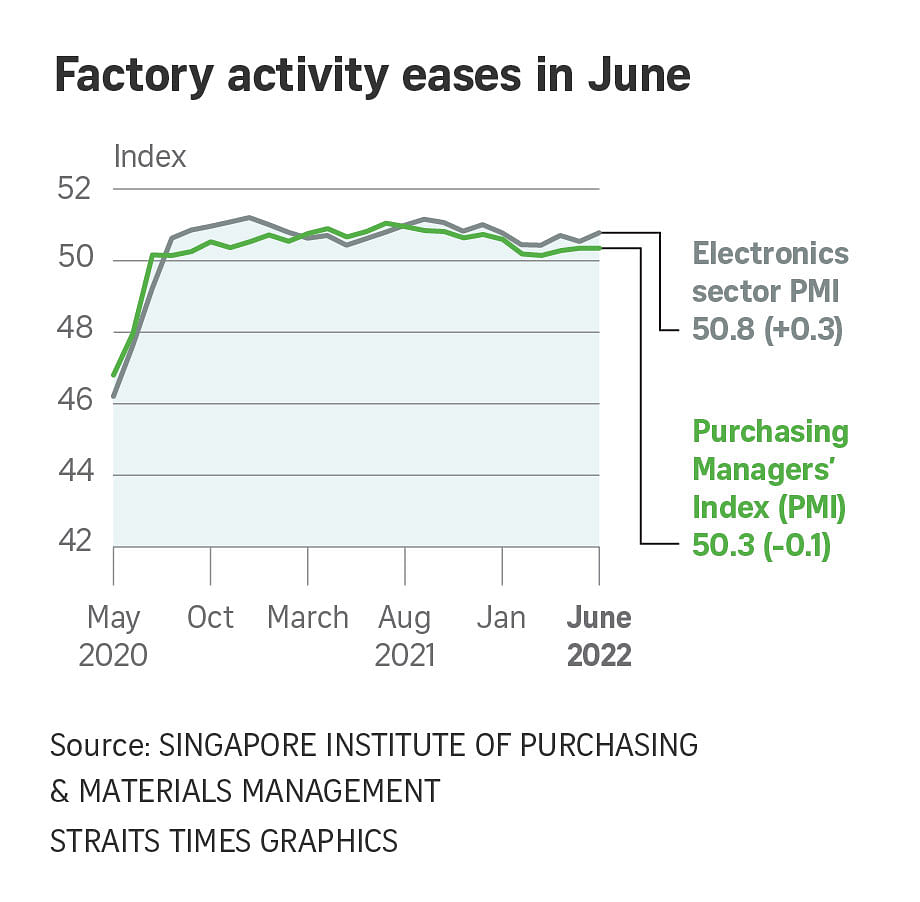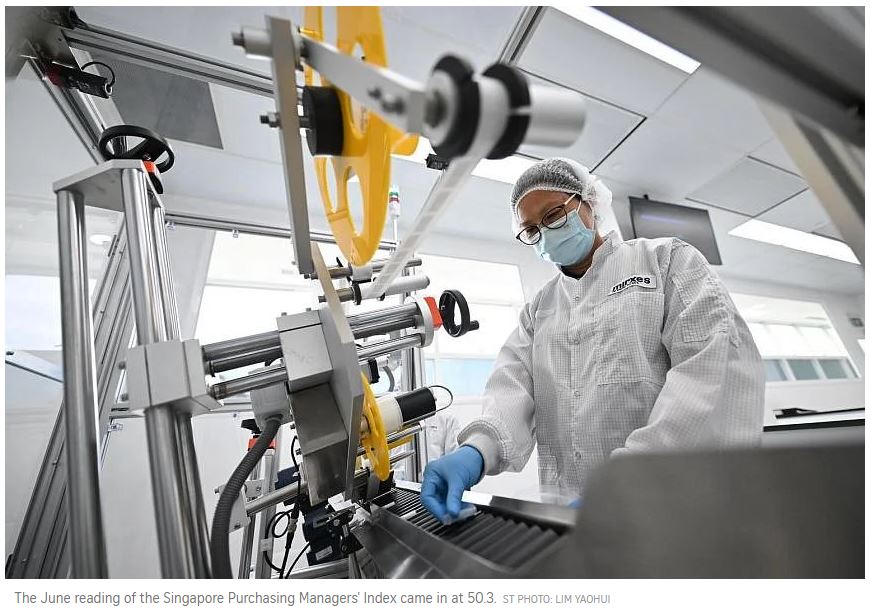Factory activity in Singapore expands but at a slower pace
SINGAPORE – Factory activity in Singapore clocked its 24th consecutive month of expansion in June, although growth slightly slowed compared with May.
The June reading of the Singapore Purchasing Managers’ Index (PMI) came in at 50.3, 0.1 point lower than for the previous month, said the Singapore Institute of Purchasing and Materials Management (SIPMM) on Monday (July 4).
A reading above 50 indicates growth, while below 50 signals contraction.
SIPMM said the latest PMI was attributed to faster expansion rates in the key indexes of new orders, new exports and factory output, as well as an expansion in the inventory index and supplier deliveries index.
SIPMM vice-president for industry engagement and development Sophia Poh said the overall manufacturing sector has recorded continued expansion throughout the first half of the year, with the latest PMI reading indicating strong performance for the electronics industry.
She added: “This positive outlook is indeed heartening, considering several headwinds facing the Singapore economy, and primarily due to the continuing Russia-Ukraine conflict.”
The electronics sector saw a faster pace of expansion and came in with a PMI of 50.8 in June, up 0.3 point from May, despite the overall manufacturing sector seeing a slowdown in growth.
This is attributed to faster expansion in the key indexes of new orders and new exports, as well as a slower contraction in both the inventory and the supplier deliveries indexes, among others.
Maybank analyst Lee Ju Ye said the slower expansion is in line with the easing PMI across Asean in June, likely caused by the global slowdown and persistent supply bottlenecks.
Supply disruptions caused by China’s strict Covid-19 lockdown and fears of a global recession had caused Asia’s manufacturing activity to stall in June. Japan and South Korea reported a slowdown, while Taiwan saw a contraction, Reuters reported earlier.
Ms Lee added that manufacturing momentum is expected to ease in the second half of the year to low single-digit growth, due to factors such as a slowdown in non-chip sectors because of weakening global demand.
Ms Selena Ling, chief economist and head of treasury research and strategy at OCBC Bank, said the sector faces headwinds such as global growth slowdown, partly due to aggressive monetary policy tightening by major central banks to combat inflation.
Uncertainty over the Covid-19 situation with the emerging BA.4 and BA.5 Omicron sub-strains is also another challenge.
But the global demand for electronics continues to be resilient, with demand being driven by 5G markets and other consumer electronic products, said Ms Ling.

She expects growth momentum in the domestic electronics industry, especially for semiconductors, to hold up in the near term.
Ms Ling added: “New orders, new exports and order backlog gauges continue to tick higher, imports and input price gauges continue to deteriorate. So the main challenge would be compressing margins and the difficulty of supply chain bottlenecks.”
Source: https://www.straitstimes.com/business/economy/factory-activity-in-singapore-expands-in-june-but-at-a-slower-pace


 Thailand
Thailand




